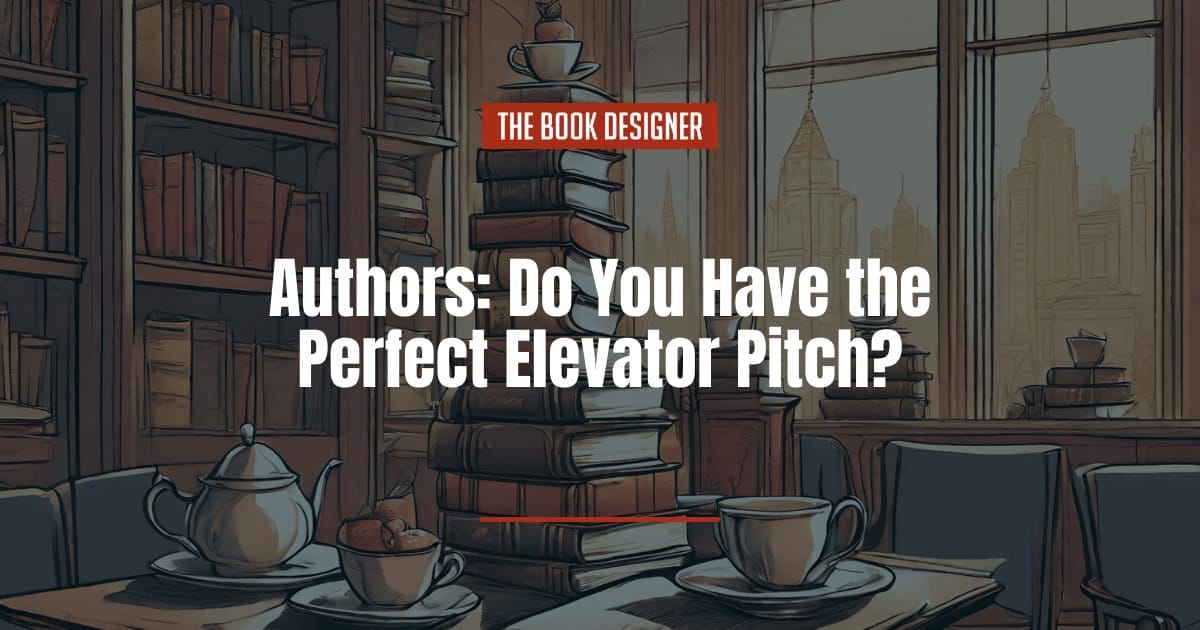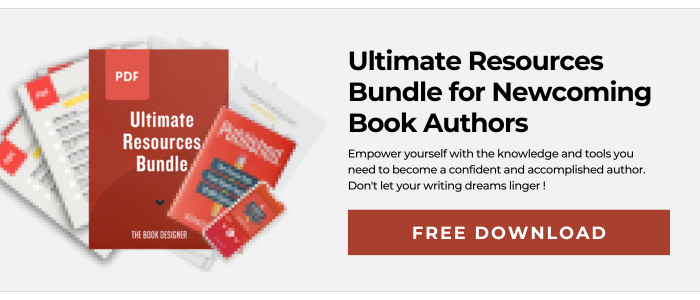Sometimes, opportunities arise to sell your book to readers in person. Will you be ready? Sometimes having the perfect elevator pitch for your book ready can make the difference between a new potential super fan and a lost sale.
But what is an elevator pitch? And in what context would you use one? There are a number of opportunities that might pop up in an author’s life where a book elevator pitch (which is different than a personal elevator pitch) is useful, from casual conversations where your writing comes up to more formal events.
Here’s what you need to know about the perfect elevator pitch for your book and how to use it to increase sales:
Your Elevator Pitch at Formal Events
This October, I will host my 6th annual Authors Tea…a Saturday afternoon where up to 15 authors get the opportunity to speak about their books in 60 seconds or less to approximately 100+ book-buying attendees-my invited friends and all the author’s friends that they have invited as well.
It’s a standup and sit down tea with the usual food spread one would find at a High Tea—a variety of yummy desserts plus mini sandwiches and cheeses in my home as the setting. And, of course, a variety of teas to choose from. The energy is always fun (last year’s was on Halloween afternoon and many of the authors showed up in costume), networking and schmoozing. Lots of books are sold … bringing gifts to brother Charlie, Aunt Sue, kids, best friends and for self. All ages and genders are welcome.
The authors get the book sales and pay me $25 to participate to cover some of the food costs. I view it as a book marketing co-op…one of the strings attached to being a featured author is not only paying for the slot but also committing to bring at least four guests there as well. As I’ve told my participants, “It doesn’t matter if your guests already own your book…”In fact, if they do own it, they become cheerleaders for you—your Super Fans—telling other guests how wonderful your book is—the fabulous word-of-mouth marketing in action.”
From the get-go, featured authors are told to keep their elevator pitch short—the shorter, the better (after all, the idea behind an elevator pitch is that it could be delivered in an elevator ride). It’s always a challenge. Keep in mind: when anyone rambles, listeners ears start closing. Savvy authors who want to sell books learn how to pitch—with a hook that gets the listener to think, to say…“tell me more”. That “tell me more” could be in an open Q&A and in the case of the Authors Tea, it becomes the opportunity to talk directly with the author in an environment that is comfortable and casual.
Can You Pitch?
I give my Tea authors 60 seconds to pitch, to start the connection process. Since I usually have a new book each year, I’m one of the pitchers—I can do it in 10 seconds. What about you?
When someone asks you what your book is about, can you clearly and concisely say it in 15 seconds or less? Most authors fail miserably at this essential task. When his or her mouth opens, words flow…and flow…and flow. Sometimes, they can become an endless river. They ramble on about:
- the background
- why the book was written
- who the characters are and what they do
- how the book solves all the problems of the disease
- the situation
- the “you name it”
The concept of being “concise” doesn’t register in the response.
The Importance of the Elevator Pitch
Around you are the voices of thousands of people competing for space in your buyer and reader’s head. Learn how to get your voice, your expertise, and your book, heard above the clatter and racket of the book crowd.
You want your elevator pitch to create one response from the listener. Tell me more. The listener may think it; he or she may say it. Your pitch needs to elicit it.
Acquiring the skills for pitching yourself and your book, you will discover that the results adapt to publicity and marketing, as well as the direct book buyer and anyone else who lands in your path.
Within your pitch, use one or more of these elements:
- Your words should create an instant visual.
- Your words need to be succinct.
- Your words can be quirky and fun.
- Your words can include something familiar.
- Your words can have a rhyme meter and rhythm to them.
- Your words can use alliteration.
Authors are notorious when it comes to talking about their books…or trying to describe what their books are about. The savvy author knows how to pitch, and hook the listener quickly and succinctly. The result? “Tell me more about…” becomes the response—the author has thrown the lure out—the portal is now open to engage the potential reader/book buyer and reel him or her in.
The result: you will sell books. I guarantee it.



